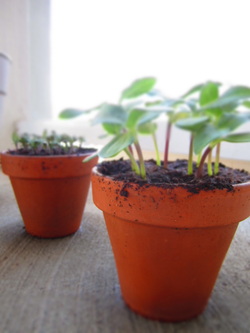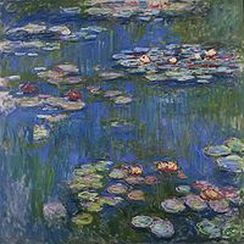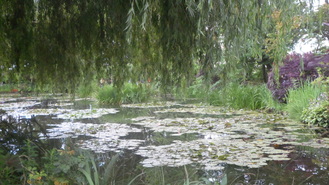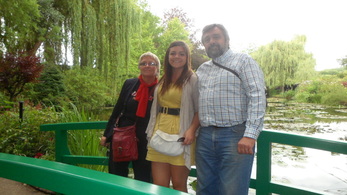These reasons are all very well and good. Today it is not-quite Christmas, and so I think it is appropriate to share some of the recent feelings I've had towards Christ.
In Brideshead Revisited, the following dialogue caught my attention:
“Is it [Catholicism] nonsense? I wish it were. It sometimes sounds terribly sensible to me.”
"But, my dear Sebastian, you can't seriously believe it all."
"Can't I?"
"I mean about Christmas and the star and the three kings and the ox and the ass."
"Oh yes, I believe that. It's a lovely idea."
"But you can't believe things because they're a lovely idea."
"But I do. That's how I believe."
It is a lovely idea, indeed, to arrange a manger scene and show kings and mighty spirits bowing to the innocence of a baby. A lovely idea, too, that we selfish small-souled people could turn our right cheek to someone who had struck our left. That we could bless - or even be - the meek, the humble peace-makers. That we would place others before ourselves; love our enemies; give our cloak to the one who had asked for our shirt; and cease to be Scrooges, even briefly.
How often do we do these things?
Not very, perhaps, and with the feast of Christmas arriving tomorrow it's a timely moment to re-read the Sermon on the Mount, arguably the most beautiful and utopian ideal for humanity that has ever been envisioned. As Chesterton said, "Christianity has not been tried and found wanting; it has been found difficult and not tried." This leads me, then, to a short passage from The Silver Chair by C.S. Lewis that has somewhat defined my faith of late. It is Puddleglum addressing the evil queen as she tries to convince the protagonists that no "over-world" exists, but only her own dark, underground kingdom. Aslan is the Christ-figure in the books:
"One word, Ma’am . . .One word. All you’ve been saying is quite right, I shouldn’t wonder. I’m a chap who always liked to know the worst of things and then put the best face I can on it. So I won’t deny any of what you said. But there’s one thing more to be said, even so. Suppose we have only dreamed, or made up, all those things–trees and grass and sun and moon and stars and Aslan himself. Suppose we have. Then all I can say is, in that case, the made-up things seem a good deal more important than the real ones. Suppose this black pit of a kingdom of yours is the only world. Well, it strikes me as a pretty poor one. And that’s a funny thing, when you come to think of it. We’re just four babies making up a game, if you’re right. But four babies playing a game can make a play-world which licks your real world hollow. That’s why I’m going to stand by the play-world. I’m on Aslan’s side even if there isn’t any Aslan to lead it. I’m going to live as like a Narnian as I can, even if there isn’t any Narnia. So, thanking you kindly for our supper, if these two gentlemen and the young lady are ready, we’re leaving your court at once and setting out in the dark to spend our lives looking for Overland. Not that our lives will be very long, I should think, but that’s a small loss if the world’s as dull a place as you say."
And so goes our faith to an extent. It is a lovely, beautiful, often-untried idea. It seems so improbable, so impractical, so old in the midst of modernity. But that Sermon on the Mount, and the personality and vision of Christ expressed in the Gospels, remain among the most objectively beautiful passages ever written. Remain among the most compelling worldviews ever made. And - with a nod to Pascal and his wager - I am going to live as much like a Christian as I can, even if there isn't any Christ or Heaven or Hell (although I believe that there is). It's not a question, sometimes, of the truth of my faith or of my feeling secure in it. It is a question of exquisite beauty, and this our faith possesses abundantly.
Merry Christmas and God bless us, everyone!
-LC




 RSS Feed
RSS Feed